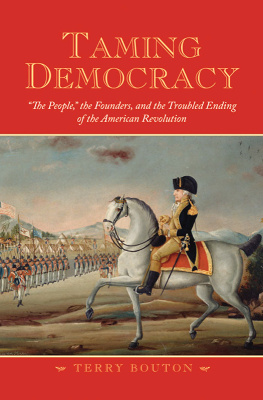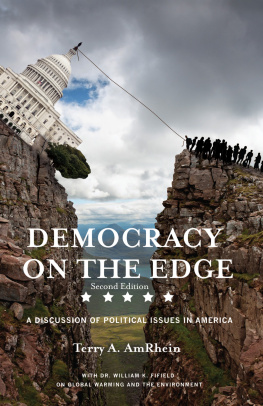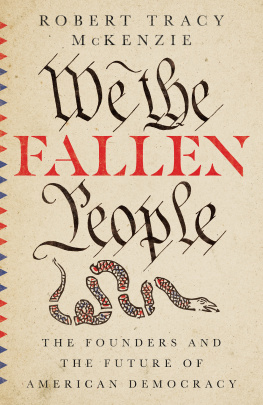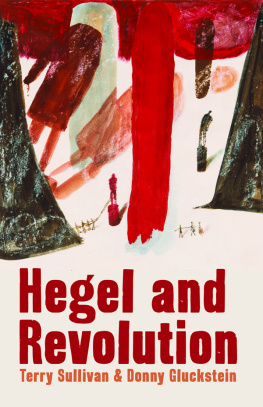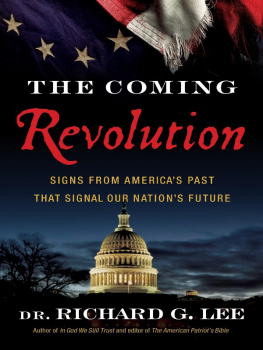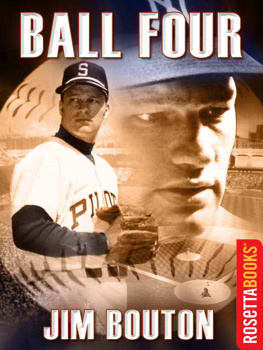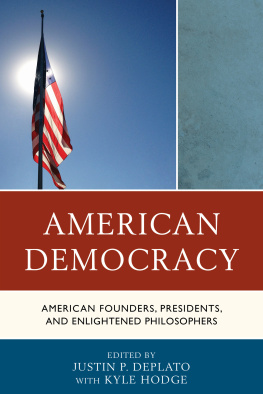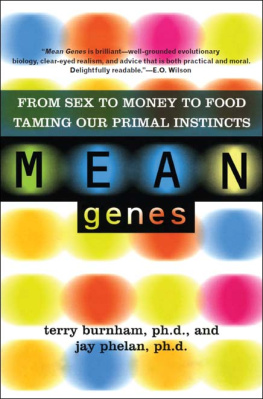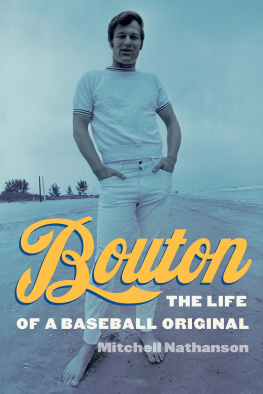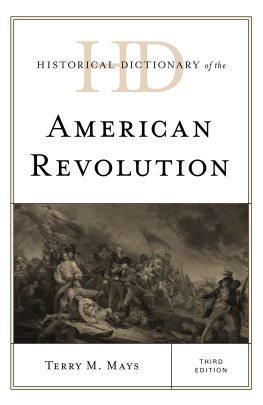Terry Bouton - Taming Democracy: The People, the Founders, and the Troubled Ending of the American Revolution
Here you can read online Terry Bouton - Taming Democracy: The People, the Founders, and the Troubled Ending of the American Revolution full text of the book (entire story) in english for free. Download pdf and epub, get meaning, cover and reviews about this ebook. year: 2007, genre: Politics. Description of the work, (preface) as well as reviews are available. Best literature library LitArk.com created for fans of good reading and offers a wide selection of genres:
Romance novel
Science fiction
Adventure
Detective
Science
History
Home and family
Prose
Art
Politics
Computer
Non-fiction
Religion
Business
Children
Humor
Choose a favorite category and find really read worthwhile books. Enjoy immersion in the world of imagination, feel the emotions of the characters or learn something new for yourself, make an fascinating discovery.
- Book:Taming Democracy: The People, the Founders, and the Troubled Ending of the American Revolution
- Author:
- Genre:
- Year:2007
- Rating:5 / 5
- Favourites:Add to favourites
- Your mark:
- 100
- 1
- 2
- 3
- 4
- 5
Taming Democracy: The People, the Founders, and the Troubled Ending of the American Revolution: summary, description and annotation
We offer to read an annotation, description, summary or preface (depends on what the author of the book "Taming Democracy: The People, the Founders, and the Troubled Ending of the American Revolution" wrote himself). If you haven't found the necessary information about the book — write in the comments, we will try to find it.
Terry Bouton: author's other books
Who wrote Taming Democracy: The People, the Founders, and the Troubled Ending of the American Revolution? Find out the surname, the name of the author of the book and a list of all author's works by series.
Taming Democracy: The People, the Founders, and the Troubled Ending of the American Revolution — read online for free the complete book (whole text) full work
Below is the text of the book, divided by pages. System saving the place of the last page read, allows you to conveniently read the book "Taming Democracy: The People, the Founders, and the Troubled Ending of the American Revolution" online for free, without having to search again every time where you left off. Put a bookmark, and you can go to the page where you finished reading at any time.
Font size:
Interval:
Bookmark:
T HE R ISE OF D EMOCRACY (1763-1776)
C ONFRONTING THE C OUNTER R EVOLUTION (1776-1787)
T AMING D EMOCRACY (1787-1799)
There are far too many people to thank for a book that took so long to complete. My apologies to anyone I inadvertently leave out of these thank you pages. Larry Goodwyn sparked my interest in social movements and provided encouragement during graduate school, for which I will always be grateful. Larry also taught me a great deal about writing, the greatest gift I received from my education. This was back when he still smoked pretty heavily and, by the time we were finished with a marathon editing session, every fiber of my clothing was inundated with whatever ghastly brand of cigarettes he smoked. When I got home, my wife would make me take off my clothes on the balcony facing the parking lot of our multiplex apartment and put them in a thick plastic bag before she would let me inside. I always thought about those smoky clothes as a tribute to Larrys dedication and patience, a model I hope I can emulate with my own studentswithout the cigarette smoke.
I was lucky to have taken Peter Woods seminar on early American history, more or less on a whim. It turned out to be the best course choice in my entire academic career. Peters enthusiasm and his engaging way of telling a story got me hooked on the colonial and revolutionary period. He also handed me a book on a 1794 uprising in Pennsylvania, which got this project started. Over the years, he has been a gracious mentor and a thoughtful editor, who has pushed me to write clearly and forcefully. Susan Ferber at Oxford has been a remarkable (and remarkably patient) editor. I am grateful for her diligence, excellent suggestions, and willingness to let me write the book I wanted to write.
I was also fortunate to have outstanding readers who provided encouragement and smart advice. I am grateful to Al Young, Ed Countryman, and Allan Kulikoff for dissecting the manuscript and helping me to pare it down from the behemoth they first received. I have been humbled by their dedication to making it a stronger book. I also want to thank those who offered comments on incarnations of various chapters: Alan Taylor, Elliott Gorn, Laura Edwards, Marjoleine Kars, Woody Holton, Michael A. McDonnell, Jeani OBrien, Bill Pencak, Cathy Matson, Greg Dowd, Seth Rockman, Tom Humphrey, Reeve Huston, Drew Cayton, Jack Marietta, Wythe Holt, David Thelen, David Nord, Roger H. Brown, Owen S. Ireland, Gordon S. Wood, and Thomas P. Slaughter.
I have benefited from financial and scholarly support from a variety of sources. Jim Scott and Kay Mansfield at the Program for Agrarian Studies at Yale University let me into their academic wonderland for a year. The weekly seminar and my incomparable fellow fellows offered a model for how a scholarly community can work. Funding for that year was also supplied by the inaugural Oscar Handlin fellowship from the American Council of Learned Societies. Linda Shopes and the folks at the Pennsylvania Historical and Museum Commission provided me with several months of funding and expert navigation through the files at the state archives. Jim Grossman set me up with a carrel for the better part of a year at the Newberry Library, where Al Young and the participants in the Seminar in Early American History made me feel welcome. I received a summer stipend from the National Endowment for the Humanities and summer research funding from the University of Maryland, Baltimore County, and Winthrop University. My colleagues at UMBC have been wonderfully supportive, as were my former colleagues at Winthrop University and at Miami University of Ohio (where, as an adjunct, I was treated with respect and great kindness, for which I am especially grateful to Charlotte Goldy and Drew Cayton). I received considerable help from archivists and staff at the Historical Society of Pennsylvania, the National Archives, and the Manuscript Division of the Library of Congress. I also want to thank the unsung archivists and clerks at county courthouses throughout Pennsylvania, who educated me about legal records and even let me join the coffee pool. On a personal note, Id like to thank Bob Bouton, Dee Abbott Youngs, Eleanor Wong, John Youngs, Diana and Mike Oliver, Russ Nagy, Jim Amspacher, Aaron Althouse, Ginger Williams, Ed Haynes, Juliana Barr, Cynthia Herrup and Judith Bennett, Suzanne Kaufman, Ann Little and Chris Moore, and the countless coffeehouse baristas who let me steal electricity for my laptop.
Finally, I want to thank my daughter, Sophie, and my best friend, colleague, and wife, Amy Froide, who, aside from making me take off smoke-infused clothes in front of neighbors at our crummy apartment in Durham, has been the best thing in my life. Since weve been together, weve moved nineteen times, lived in eight states (and the United Kingdom), had a commuting marriage for six years between a combination of seven different universities and fellowships, and, in one unforgettable semester, made weekly trips (with a screaming nine-month-old) to Rutgers, New Jersey, where we lived in a musty basement for two-day stints before heading back to Baltimore so I could teach. After everything weve been through, nothing makes me happier than watching our three-year-old kick the gaudy spam ball from my office down the hall to hers.
No one mentioned above is responsible for any mistakes in the book, except for Elliott Gorn, whom I personally blame for any errors of factalong with my parents, my high school friends, prurient television programs, heavy metal music, and violent video games.
Every Fourth of July, Americans gather at cookouts, parades, and firework displays to commemorate the birth of American democracy. From a broad perspective, there is much to celebrate in the story of thirteen colonies breaking away from monarchy to begin their unprecedented experiment in democratizing government and society. Even if the kind of democracy the Revolution created was in many ways more limited than the one we enjoy today, it was, nonetheless, a form of government that often provided greater freedom than Americans had experienced under British rule. The new state and national governments opened political access to ordinary folk as never before. They also tended to protect a wider range of civil liberties than had the system of rights granted by colonial governments, the British Parliament, and the king.
That said, the question remains: how democratic was the Revolution? To what extent did the Revolution actually democratize government and society? How much power did the people really wield? How responsive were the new governments to the interests and ideals of ordinary Americans? What kind of democracy did common folk want from the Revolution? And how happy were they with the version of democracy the Revolution brought? In short, if it was a Revolution by the people, to what extent was it also a Revolution for the people?
Of course, in large part, the answer depends on how one defines the people. To see the Revolution as a democratic victory for the people, one has to cut most of the people out of the story. Women received few tangible benefits from the Revolution and were almost left out of the expansion of suffrage and rights. Although many slaves obtained their freedom during the Revolution (mostly by running away), and even though propertied free blacks were allowed to vote in several northern states, it would be hard to see how the new government and society represented the interests of African Americans. Its even harder to see how any of this democratization included Native Americans. Indeed, the new governments were all dedicated to wresting lands from Indians and removing them from the democratic experiment. In short, when Americans talk about the Revolution as a victory for the people, they generally use the phrase in the same sense as the founding generation: to refer to white men.
Font size:
Interval:
Bookmark:
Similar books «Taming Democracy: The People, the Founders, and the Troubled Ending of the American Revolution»
Look at similar books to Taming Democracy: The People, the Founders, and the Troubled Ending of the American Revolution. We have selected literature similar in name and meaning in the hope of providing readers with more options to find new, interesting, not yet read works.
Discussion, reviews of the book Taming Democracy: The People, the Founders, and the Troubled Ending of the American Revolution and just readers' own opinions. Leave your comments, write what you think about the work, its meaning or the main characters. Specify what exactly you liked and what you didn't like, and why you think so.

